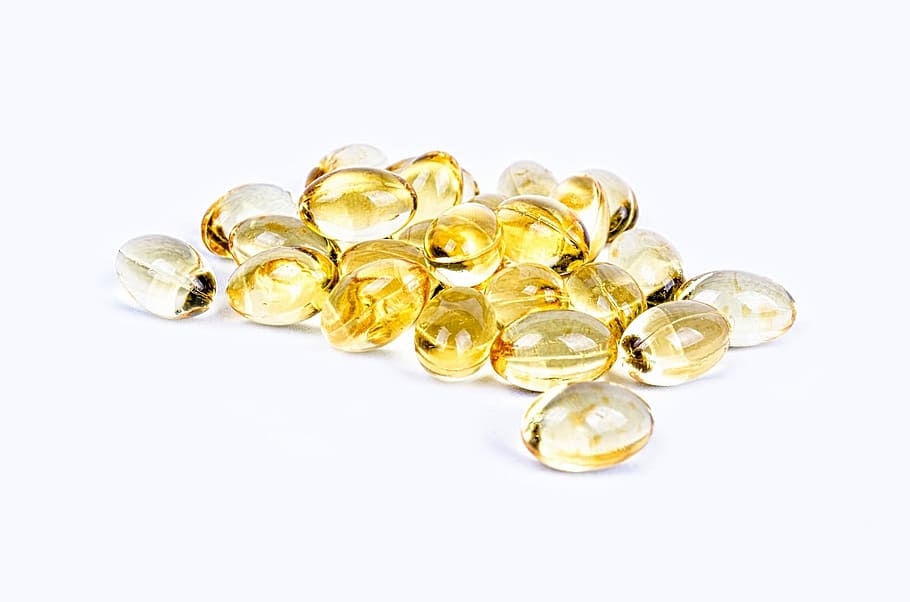What Are Omega-3s?
Omega-3s are essential fats your body can’t make on its own. The most useful forms for human health are the long-chain omega-3s found in marine sources:
-
EPA (eicosapentaenoic acid)
-
DHA (docosahexaenoic acid)
(ALA from plants converts poorly to EPA/DHA.)
1) May Ease Depression & Anxiety
Regular intake of omega-3s is linked with a lower likelihood of depressed mood and anxious feelings. In supplementation studies, EPA-rich formulas tend to show the strongest mood support.
2) Supports Eye Health
DHA is a structural building block of the retina. Adequate DHA helps maintain normal vision and is associated with a lower risk of age-related macular degeneration.
3) Critical for Pregnancy & Early Development
During late pregnancy and infancy, DHA helps build the brain and eyes. Maternal omega-3 intake is tied to benefits such as healthier visual acuity, better early learning and communication, and fewer developmental concerns.
4) Favors Heart-Health Markers
Marine omega-3s can:
-
Lower triglycerides (often ~15–30%)
-
Modestly reduce blood pressure (in hypertensive individuals)
-
Raise HDL (“good”) cholesterol
-
Help reduce platelet clumping and support smoother arteries
-
Tamp down inflammation
Note: Evidence for preventing heart attacks or strokes with supplements is mixed despite these risk-factor improvements.
5) Helps Kids with ADHD Symptoms
Children with ADHD often show lower omega-3 status. Supplementation has been associated with improvements in attention, task completion, hyperactivity, and impulsivity.
6) Supports People with Metabolic Syndrome
Omega-3s can aid triglycerides, HDL, blood pressure, insulin sensitivity, and systemic inflammation, key elements of metabolic syndrome.
7) Calms Chronic Inflammation
EPA and DHA influence inflammatory pathways (eicosanoids and cytokines), helping dial down long-term, low-grade inflammation.
8) May Help in Autoimmune Conditions
Early-life omega-3 exposure is linked with lower risk of autoimmune issues later on. In adults, omega-3s have shown benefits in conditions like rheumatoid arthritis, IBD, lupus, and psoriasis.
9) Adjunct Support for Mental Health
Lower omega-3 status is common in psychiatric conditions. Supplementation can help stabilize mood and reduce relapses in bipolar disorder and schizophrenia in some studies.
10) Healthy Brain Aging
Higher omega-3 intake is associated with slower age-related cognitive decline, reduced Alzheimer’s risk, and greater gray matter volume in key brain regions.
11) Potential Cancer-Risk Modulation
Observational data link higher omega-3 intake with lower risks of colorectal cancer and possible benefits for breast and prostate cancer risk—though findings are not uniform across all studies.
12) Asthma Risk in Youth
In children and young adults, higher omega-3 intake is associated with a lower risk of asthma and may support healthier airway responses.
13) Fatty Liver Support
In NAFLD, omega-3s may reduce liver fat and liver-related inflammation.
14) Bone & Joint Benefits
Omega-3s can improve calcium handling in bone (supporting bone strength) and may reduce joint pain and improve grip strength in arthritis.
15) Eases Menstrual Discomfort
Higher intake—and supplementation—has been linked with less menstrual pain; some trials found omega-3s outperformed common OTC options.
16) Better Sleep Quality
Low DHA levels correlate with sleep problems. Supplementation has improved sleep duration and quality in both children and adults in research settings.
17) Skin Health From the Inside Out
-
DHA supports flexible, resilient cell membranes (think: supple, hydrated skin).
-
EPA helps manage oil production, hydration, keratinization, and may protect collagen after UV exposure—supporting clearer, more youthful-looking skin.
How to Get Enough Omega-3s (SEO Tips Inside)
Best Food Sources (EPA/DHA)
-
Fatty fish: salmon, sardines, mackerel, herring, trout, anchovies
-
Aim for 2 servings/week of fatty fish
Smart Supplementing
-
Look for products that clearly list EPA and DHA per serving
-
Typical daily target for general wellness: ~1,000 mg total omega-3s with a strong share from EPA + DHA
-
Algae oil is an excellent vegan source of DHA (often with EPA)
Pro Tip: Test & Personalize
Consider a blood test (e.g., Omega-3 Index) to see your baseline and tailor your dose for optimal ranges.
The Takeaway
Omega-3 fatty acids—especially EPA and DHA—are among the most studied nutrients, with wide-ranging benefits for the heart, brain, eyes, skin, joints, liver, sleep, and inflammation. If fatty fish isn’t a regular on your plate, a high-quality omega-3 supplement is a simple, cost-effective way to fill the gap.




